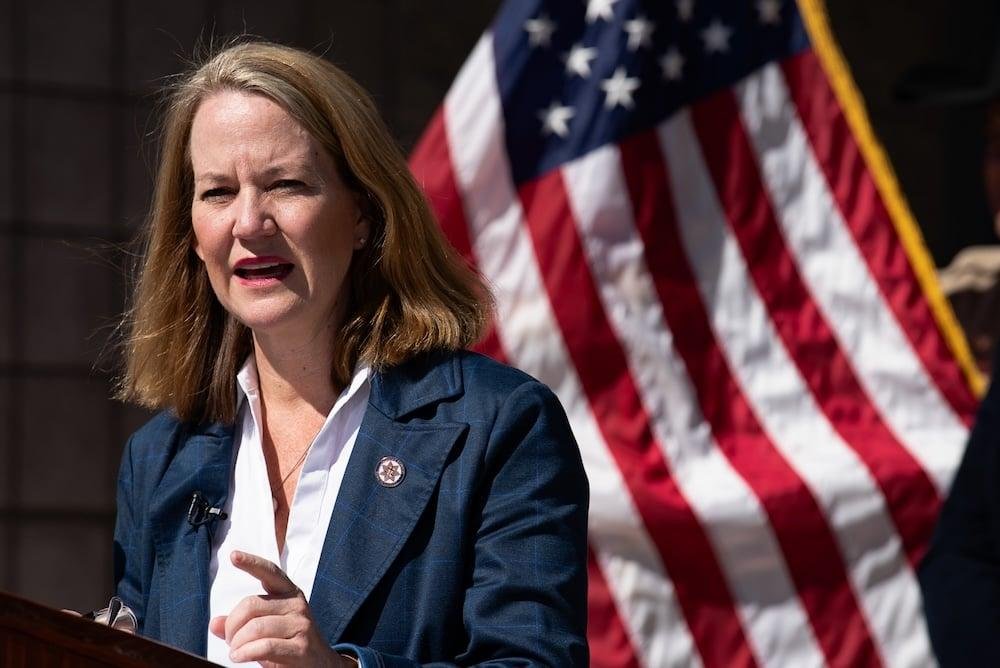crime
Blue States Unite: Building a Strong “Firewall” for Abortion Rights Amidst Challenges

In the wake of anticipated changes from the Trump administration, officials in blue states are proactively defending reproductive health rights. Connecticut Attorney General William Tong emphasized a commitment to creating a “firewall” to protect abortion access. “We’re going on offense,” he stated, positioning the response against what he deems an unprecedented war on women’s healthcare.
In 2022, the U.S. Supreme Court’s Dobbs ruling overturned Roe v. Wade, leaving individual states to navigate abortion access laws. While states like Connecticut and Massachusetts possess robust protections, there are ongoing discussions about potential challenges from federal levels and conservative states. Candace Gibson, director at the Guttmacher Institute, underscored the significant interplay between protective states and potential federal moves that could affect reproductive healthcare.
One of the critical concerns raised by Tong involves legislative efforts aimed at mifepristone, a key medication for abortions that constitutes nearly two-thirds of the procedures performed. He warned that restricting access to this medication could effectively initiate a nationwide abortion ban.
Recent legislative moves indicate a trend. Louisiana recently classified mifepristone and misoprostol as controlled substances; consequently, medical facilities are storing these medications in a way that could hinder timely access in emergencies. This development has raised alarms among healthcare professionals regarding patient safety.
Texas and North Carolina also witnessed similar legislative initiatives. In Texas, Rep.-elect Pat Curry introduced a bill echoing the Louisiana law, while North Carolina passed further restrictions despite a gubernatorial veto. These measures have led to ongoing lawsuits that challenge the law’s validity.
In response to the increasing restrictions, Democratic attorneys general from 17 states are advocating for the protection of mifepristone access, asserting that certain rules are medically unnecessary. Meanwhile, anti-abortion groups have launched initiatives, including a roadmap aiming to challenge both state and federal access to abortion medications.
Kristan Hawkins, president of Students for Life Action, outlined plans targeting legislation in nine states, including Arizona and Kentucky, to restrict medication abortions. Arizona state Rep. Rachel Jones has publicly vowed to challenge the state’s new amendment that safeguards abortion access, marking a coordinated effort to limit medication abortion access in the state.
As shield laws emerge to protect abortion providers from prosecution, only a select few states are fully safeguarding these rights irrespective of the patient’s location. California, Massachusetts, and New York have seen telehealth providers prescribing abortion medication to patients in restrictive states thanks to shield laws, although their resilience may soon be tested.
Gibson noted the anticipation of legal challenges as state officials brace for a potentially more hostile environment under the Trump administration. Massachusetts Attorney General Andrea Joy Campbell affirmed her commitment to advancing reproductive rights through collaboration across states.
The urgency for these measures is underscored by recent legislation in Maryland, which aims to safeguard digital privacy concerning reproductive health data. States like Connecticut and Massachusetts are evaluating how to fortify existing laws if federal guidelines shift regarding emergency reproductive care.
This intricate landscape of state-level actions illustrates a growing recognition that local bans on abortion access extend beyond state lines, influencing regional healthcare dynamics and reproductive rights discussions. The evolving legal context ensures that the coming legislative sessions will be pivotal in shaping the future of reproductive health in America.
















